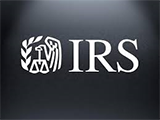H&W: Employee Payment Plans and Health Coverage
 The IRS has provided additional guidance and transitional relief for employers offering health coverage through “employee payment plans”.
The IRS has provided additional guidance and transitional relief for employers offering health coverage through “employee payment plans”.
An employee payment plan is one in which an employer reimburses employees for some or all of the premium expenses they incur for purchase of an individual health insurance policy (including Medicare or Tricare). This could be through an HRA or paid directly by an employer to an insurer. In previous guidance, the IRS held that such arrangements are health care plans for purposes of the ACA; but that they violate the ACA because they fail to comply with the ACA’s prohibition on annual dollar limits. As a consequence, employers maintaining such arrangements will be liable for an excise tax of $100 per person per day under IRC Code Section 4980D.
In its most recent guidance (Notice 2015-17), the IRS provides further insight into the treatment of employee payment plans and grants transition relief to small employers who have been maintaining such plans.
Transition Relief for Small Employers
Employers that use employee payment plans will not be subject to excise taxes under Section 4980D (1) for employers that are not Applicable Large Employers (ALEs) for 2014; and (2) for January 1 through June 30, 2015 for employers that are not ALEs for 2015.
In general, an employer is an ALE for a given calendar year, if it employed an average of at least 50 full-time employees (including full-time equivalent employees) on business days during the preceding calendar year. However, for purposes of this transition relief, an employer may determine its ALE status by reference to a period of at least six consecutive calendar months, as chosen by the employer, during the 2013 calendar year for determining ALE status for 2014 and during the 2014 calendar year for determining ALE status for 2015, as applicable.
|
Note: this relief does not apply to HRAs or other arrangements that reimburse employees for medical expenses other than insurance premiums. |
Application of Market Reforms to 2-Percent Shareholder-Employees
Until further guidance is provided (and in any event until the end of 2015), the excise tax under Code § 4980D will not be asserted for any failure to satisfy the market reforms by an arrangement whereby an S-Corporation pays for or reimburses premiums for individual health insurance policies covering 2-percent shareholder-employee.
“Gross-Up” Arrangements
Arrangements in which an employer increases an employee’s compensation to assist with the purchase of an individual policy are not considered employee payments plans, provided that the employer does not condition the payment of the additional compensation on such a purchase and does not endorse a particular insurer or health plan.